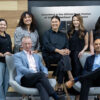While primarily a cybersecurity company, “we have observed that Internet speed has always been the top issue in terms of cloud adoption in the country,” said Yeo Siang Tiong, GM for Southeast Asia of Kaspersky Lab.
Tiong noted that cloud adoption has grown and continues to grow. In fact, “our local customers already understand the advantages and disadvantages of being in the cloud. They already know which application should go on premise and which should be on cloud. It’s a hybrid approach in most cases, no single entity is 100% on cloud.”
Tiong believes that this is because of the challenges presented when maintaining both on-premise and cloud.
“First, it is not a forklift (moving all from on-premise to cloud), so having the IT systems continue to work while the transition is happening is important. Second, it is likely that companies adopt a hybrid deployment of on-premise and cloud. Having a consistent security strategy and policy is a challenge because the attack surface is different. And third, even for small companies that fully embrace the cloud, they still have devices in their hands. So having a cloud-based security management for their end devices makes sense, but most security software are not versatile to accompany them throughout this cloud journey.”
To help company’s “cloudify”, Tiong said Kaspersky protects both on-premise IT systems and cloud-based IT systems. “Our Kaspersky Endpoint Security Cloud is a quick-start endpoint protection with a Security-as-a-Service solution that makes minimal demands on SMB’s budget, time, and energies. While for small and medium businesses still on-premise, we have our Kaspersky Endpoint Security for Business to protect them against even the most advanced threats.
“Moreover, our enterprise solution’s portfolio is growing further as we create next generation solutions for huge organizations and industries. We offer both products and services which include training and threat intelligence. All of these are essentially part of our goal to achieve ‘True Cybersecurity’, based on our Kaspersky Adaptive Framework which aims to cover four stages of attacks – predict, prevent, detect, and respond.”
Tiong believes they have an edge over their competitors.
“We offer technologies and services that are powered by our over 20 years of threat hunting and a decade of experience in machine learning. These were made possible by our Research and Development Team which we call GreAT (Global Research and Analysis Team),” he said.
GReAT is composed of over 40 cybersecurity experts working in five regions of the world who have been uncovering APTs, cyber-espionage campaigns, major malware, ransomware, and underground cyber-criminal trends since 2008. They have unmasked malicious activities of notorious cybergroups such as the Lazarus and the cyberespionage gang dubbed as The Equation Group.
This team of security professionals brings expertise and provides Kaspersky “an edge in anti-malware research and innovation. The real-time data they have gathered and still being gathered is at the heart of our holistic and adaptive solutions and services, allowing us to deliver True Cybersecurity as the digital landscape continuously evolves. Because of the emphasis we placed on research and development, our solutions and services, being based on deeper end of analytics, remain unparalleled.”
And this, he believes, is relevant as companies still continue to find their footing in the cloud.













































































































